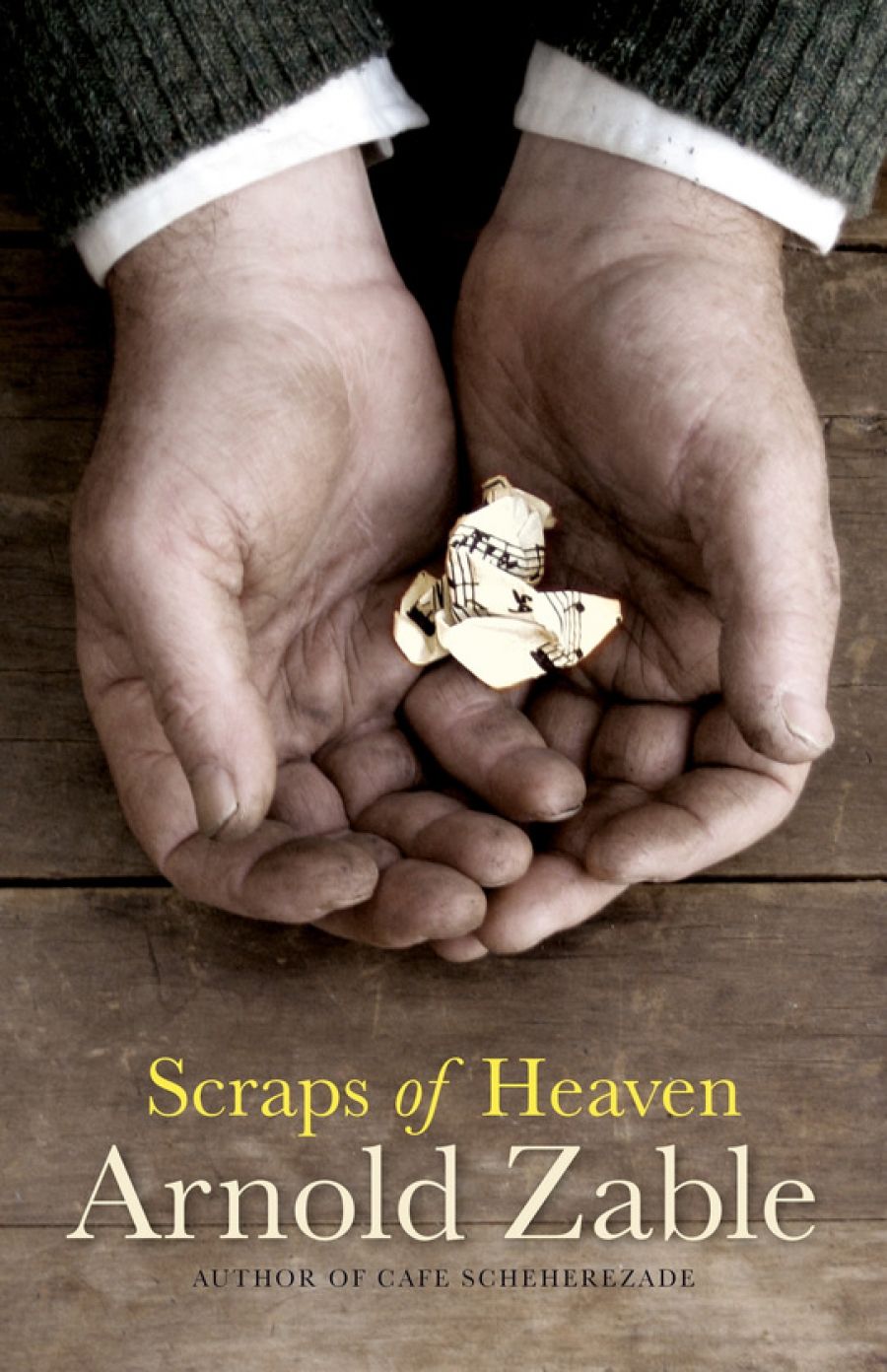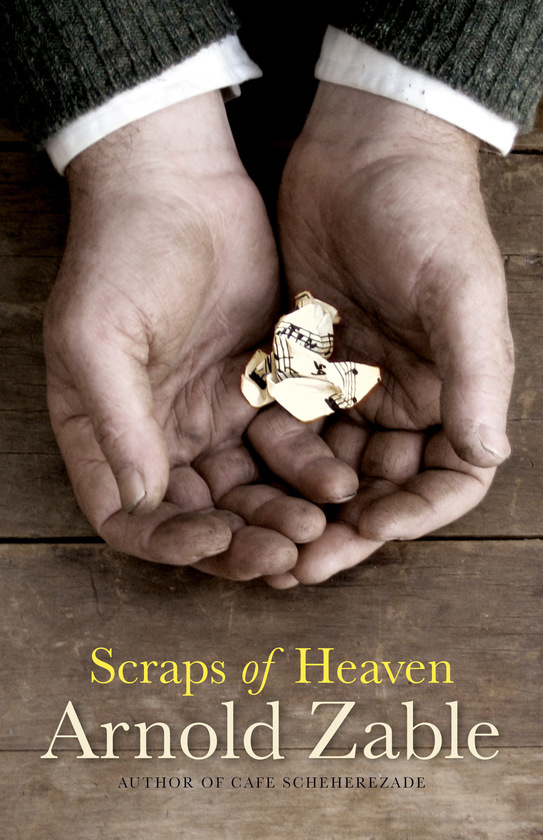
- Free Article: No
- Contents Category: Fiction
- Review Article: Yes
- Article Title: Carlton Quit
- Online Only: No
- Custom Highlight Text:
In another era, Arnold Zable might have been a librettist instead of a novelist, like Oscar Hammerstein or Arthur Laurents. His latest novel, Scraps of Heaven, opens with an overture, that borrows a great deal from the books of old Broadway musicals: an early morning scene in the back lanes of 1950s Carlton, filled with the incidental music of milk carts, the syncopated slap of wet laundry and then a woman singing, ‘Enjoy yourself, it’s later than you think’.
- Book 1 Title: Scraps of Heaven
- Book 1 Biblio: Text, $29.95 pb, 246 pp
- Book 1 Cover Small (400 x 600):

- Book 1 Cover (800 x 1200):

Like his non-fiction works, The Fig Tree (2002) and Jewels and Ashes (1991), this is a meditation on the songlines that map Zable’s childhood landscape. As a work of fiction, Scraps of Heaven is freer to explore the secret lives excluded from his oral histories. He weaves in flashbacks and nightmares the bluster of wife-beating drunks and the schmaltz of self-made men, to offset the memories of Yiddish theatre and raucous wedding receptions. But it is a curiously unsatisfying novel, with a story that wanders as aimlessly as a restless adolescent. Zable has lavished attention on the little details, but has not given his work a strong narrative to help the reader find their way through his drifts of music and story.
If you do not mind ambling in the past without a map. you can pass the time enjoyably with Scraps of Heaven. But it will not take you anywhere.
Zable has always had a sing-song cadence in his prose, but the rhythms and melodies are much louder now, and entirely deliberate. We begin, just before dawn, with ‘the metallic clip-clop of hooves, the rattling and tinkling of bottles, the quick rhythmic steps of a man on the run, interrupted by the creaking of the front gate flung wide open’. Later, the thwack of medicine balls, the hum of sewing machines and the incantations of race callers will all be added to the mix, along with snatches of songs: ‘Making Whoopee’, ‘Catch a Falling Star’, ‘La Cuearacha’ and ‘Strange Fruit’ are all mentioned. Yiddish folk songs give way to drunken bar tunes, classical violin recitals. bebop and the new rock ‘n’ roll, Buddy Holly gulping and crackling on a boy’s turntable. Let’s call it, Oh! Carlton. Zable continues to work his own, almost mythical patch of Melbourne, the crowded tenements of postwar Carlton, a close-packed suburb that hosted many thriving immigrant communities: Jewish, Italian, Greek, Celt, all cohabiting in relative peace and rebuilding lives destroyed and uprooted by World War II.
Scraps of Heaven is a novel in four acts, one for each season. Much of the story traces the footsteps of Josh Swerdlow, the watchful teenage son of Romek and Zofia, Auschwitz survivors. For his traumatised parents, especially Zofia, the sunny streets of Carlton are but painted backdrops pulled across backstage memories. But Josh is Melbourne born and bred, roaming his natural habitat with a confidence his parents will never recover.
You wouldn’t call it Zable’s version of West Side Story. A few feral kids playing tough guy in the park do not a gang make, and there is not enough interracial rivalry to quicken the heart or the feet. The mood is too mild for that, even though the houses arc so close together that neighbours are woken by each other’s nightmares. Josh is occasionally terrorised by young hoods who pin him to the ground and tell him to say he killed Jesus. He considers this a threat to his masculinity and takes up boxing and running. His mother reads it as a sign: ‘that is how it is everywhere. Even here, in all our black years.’
Zable knows how to show us the Zofia and Romek of the 1950s, teetering on the edge between endurance and despair. He can show the tension of unhappily married life in the rattle of a teacup and a nervous glance at the kookaburra emblem on the front of a gas stove. But the flashbacks to Auschwitz are more problematic. The language here is flatter, pure reportage, although it is supposed to be swirling up unbidden from a woman’s memory. The real horrors reverberate not in these retellings, stark and rushed, but in the effects on the psyche decades later, as when a man watches two girls play in the park and tries not to remember his own dead daughters.
Melburnians will recognise the street names in this novel, and some will recognise the parks and pubs that Josh passes on his way through, but it is not a town we can walk through anymore. The old milkbars are now boutiques, the terraces house millionaires instead of new migrants, and even the neighbourhood library is a designer showpiece. Yet Carlton has managed, somehow, not to morph into another stuffy postcode. It is still a welcoming suburb, saved from middleclass sobriety, perhaps, by the high-rise towers and ramshackle share houses that keep the multi in its cultural makeup. But Zable’s own Carlton really lives on only in the stories he builds out of memory. It just goes to show that you can lose your childhood landscape even if you never leave home.


Comments powered by CComment